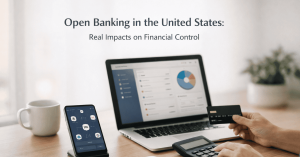Artificial intelligence has become one of the most transformative forces in modern Finances, reshaping how individuals access advice, manage investments, and plan for the future. What was once an exclusive service offered by high-cost consultants is now available to anyone with a smartphone. Through algorithms and machine learning, AI delivers tailored recommendations that mirror human insight, enabling people to take control of their financial health with precision and confidence.
This democratization of consulting has made personal finance more inclusive than ever. Americans from all backgrounds now have access to intelligent tools that analyze behavior, predict outcomes, and optimize decision-making. The integration of AI into personal Finances is not simply a technological advancement — it’s a cultural shift that places empowerment at the heart of financial planning.
The new era of financial consulting

AI has redefined what it means to receive financial advice. Instead of periodic meetings with an advisor, users can now interact with systems that offer real-time guidance 24/7. These platforms learn from spending and saving patterns, adjusting their recommendations dynamically. They analyze risk tolerance, market behavior, and personal goals, providing an experience once reserved for private wealth clients.
This immediacy also fosters consistency. Traditional consultations could be affected by emotion or timing, but AI maintains discipline and objectivity. It transforms financial consulting into a continuous, data-driven process where every decision contributes to long-term stability.
Technology as the great equalizer
Artificial intelligence has made Finances accessible to everyone. Digital advisors — often called “robo-advisors” — allow users to invest with minimal fees and maximum efficiency. Platforms such as Betterment and Wealthfront have become household names by combining automation with personalization, helping millions of Americans grow their assets with confidence.
This accessibility bridges the financial literacy gap. For younger generations, who are digital natives, using AI-driven tools feels natural. It turns personal finance from an intimidating subject into a manageable, interactive experience, encouraging smarter financial habits and long-term engagement.
Challenges and ethical concerns
Despite its promise, AI in Finances introduces complex challenges. Data security is paramount; sensitive financial information must be protected from misuse or breaches. Algorithmic bias is another concern, as systems trained on limited datasets may unintentionally discriminate or misrepresent risk. Transparency is essential to ensuring fairness, especially when automation influences major financial decisions.
There’s also the question of human connection. Financial advice often involves emotional factors — fear, ambition, uncertainty. While AI excels in accuracy, it lacks empathy. The next generation of consulting will need to combine technological precision with human understanding to truly serve the individual.
The hybrid future of consulting
The most sustainable path forward lies in collaboration between humans and machines. AI will handle data analysis, forecasting, and optimization, while advisors focus on empathy, trust, and strategic thinking. This hybrid model will elevate the quality of financial consulting, offering the best of both worlds — efficiency and warmth.
In the near future, AI will become the silent partner behind every financial decision, ensuring accuracy, foresight, and accessibility. Personal Finances will no longer be confined to the privileged few but will become a tool for empowerment available to all. The real impact of AI is not in replacing advisors but in helping everyone, regardless of income or background, plan a future with confidence and clarity.






